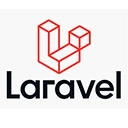JSON (JavaScript Object Notation) is a widely used data format for exchanging information between a server and a client, making it a crucial part of modern web development. In this tutorial, we'll explore how to work with JSON in Laravel, a popular PHP framework, to handle data in JSON format efficiently.
1. Introduction to JSON
JSON is a lightweight data-interchange format that is easy for humans to read and write and easy for machines to parse and generate. It is commonly used for configuration files, data exchange between a server and a web application, and more. JSON uses a simple syntax to represent data structures and objects, making it a popular choice for web APIs and data storage.
2. Creating JSON Responses
Laravel makes it simple to generate JSON responses. You can return JSON data from your controllers using the `response()->json()` method. For example:
public function getJsonData()
{
$data = [
'name' => 'John Doe',
'email' => 'john@example.com',
'age' => 30
];
return response()->json($data);
}
This method allows you to send JSON data to your application's front-end or any other system that consumes JSON.
3. Parsing JSON Data
Laravel provides methods to parse JSON data received from clients. You can use the `json_decode()` function to convert JSON data into a PHP array or object. For example:
$jsonData = '{"name": "Jane Smith", "email": "jane@example.com", "age": 25}';
$phpData = json_decode($jsonData);
// Access JSON data as a PHP object
$name = $phpData->name;
4. Validating JSON Data
When working with JSON data from external sources, it's crucial to validate the data's structure and content. Laravel's validation features can be used to ensure that incoming JSON data meets specific criteria. This helps prevent issues with invalid or malicious data.
5. Conclusion
Working with JSON in Laravel is an essential skill for web developers. It allows you to communicate with web services, create APIs, and handle data efficiently. Laravel provides convenient tools for generating JSON responses, parsing incoming data, and validating JSON, making it a great choice for web applications that rely on JSON data.
For further learning, explore Laravel's documentation on handling JSON data, including advanced topics like JSON web tokens (JWT), and consider using Laravel's JSON API resources for building robust JSON APIs.

